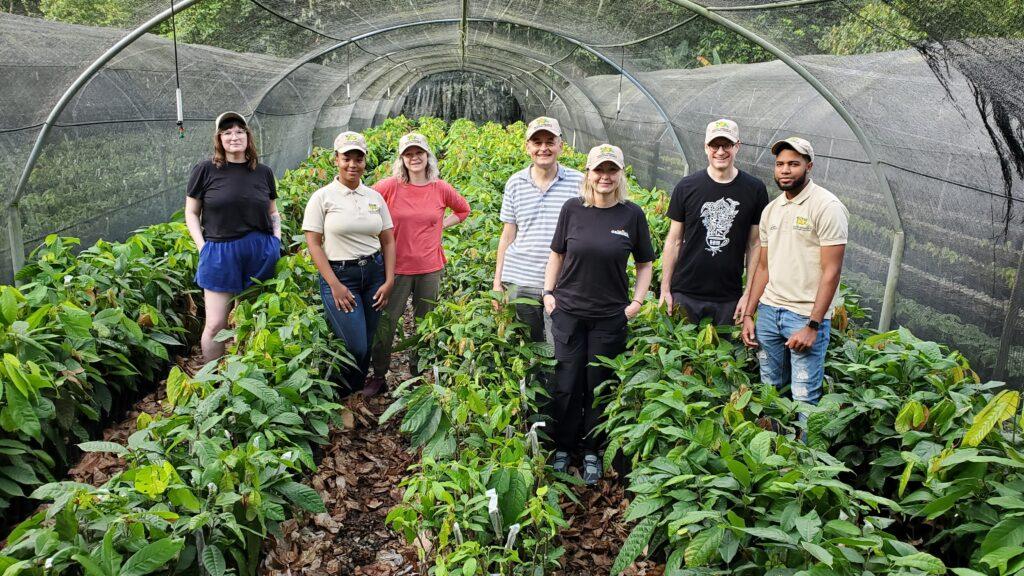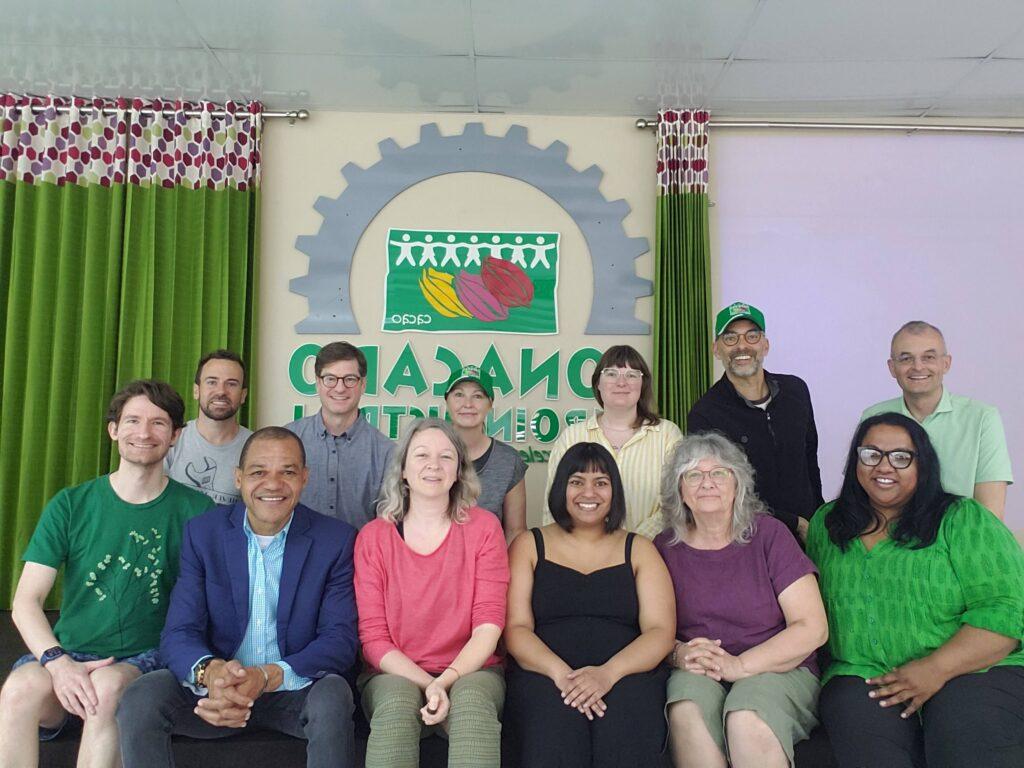Five La Siembra worker-owners venture to Peru, to meet the family farmers and producer cooperative that grows and processes our amazing Cuisine Camino Muscovado whole brown sugar.
January 2015
Our journey began with a visit to the headquarters of Cooperativa Norandino, situated in El Castillo, a township adjacent to the city of Piura, Peru. Our team met with Santiago Paz, General Manager, and Yeny Robledo, Production Manager of Co-op Norandino, then proceeded on a tour of the office and processing plant.
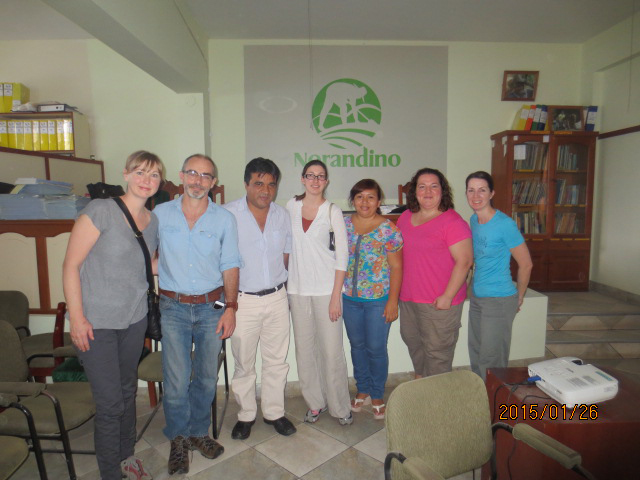
La Siembra’s Kelly, Martin, (Santiago), Josiane, (Yeny), Isabel and Jennifer
For some history, La Siembra was one of Co-op Norandino’s first sugar customers as a result of the sugar project, which transformed the co-op from a democratically-owned farmer export organization to a democratically-owned farmer organization for social and economic change.
The sugar project began in 2009 when village level co-op leaders recognized the success in raising household incomes from better prices and yields from coffee. Yet in their visits to members throughout the region, they noted that the sugar cane which members grew in the low-altitude parts of their farms, had no market. With more sugar cane than needed for home use and nowhere to sell it, most farmers were turning the sugar cane juice into a home-made rum.
Not only was it common to share a glass of homebrew whenever visitors came to call, but the process of distilling the cane juice often filled the house with smoke. To address these two negative aspects of artisanal spirit production, the farmers decided to move forward with investments in village level panela (brown sugar) collection and production facilities. Over the course of a few years they built 20 cane crushing, drying and processing stations throughout the three departments of Ayabaca, Huancabamba, and Morropón.
Panela sales grew from an initial shipment of 10,000 kilos in 2003 to over 750,000 kilos in 2009 and have averaged 444,000 kilos per year over the last few years from several key customers including La Siembra. More importantly, farmers have obtained much higher prices for their cane – from 10 cents per kilo before the project started to over 45 cents per kilo when it is sold as panela. Many farmers became new members and benefited from the project while household health and wealth clearly improved.
Today, Co-op Norandino has over 7,000 family farmer members in sugar cane, cocoa and coffee, with an average farming area of approximately 1.5 hectares. Their entire production is 100% organic and they continue to increase sales on fair trade terms with a focus on quality.
Co-op Norandino is well known for the support and benefits they provide to their members. Program services include: Training (new organic agricultural techniques, seedling transplantation, dedicated agronomists and technicians, etc., and financial management training), Credit (from advance sales of their crops to ensure a worry-free harvest season), Certification (the paperwork and coordination of various certifications can be daunting), Processing (washing tanks, depulping stations, laboratories and other quality control systems to ensure quality remains paramount) and Sales & Marketing (everything involved in bringing the fruits of the farmers labour to market).
The net result is virtually 100% producer loyalty to Norandino, meaning that producers sell 100% of their harvest to the co-op. And in return, Norandino rewards for this loyalty with incentives such as pre-financing, end of harvest bonuses and more. Last year, Santiago told us the co-op was profitable enough to give producers a bonusand a year-end gift was sent to every farmer.
Norandino’s success and growth is enabling them to expand production with a new cocoa and sugar processing facility adjacent to the 10,000 square-meter coffee facility that opened in 2007. The expansion is planned to open in 2016. The new facility will allow them to increase production and enter new markets with their premium organic whole brown sugar, processed and packaged.
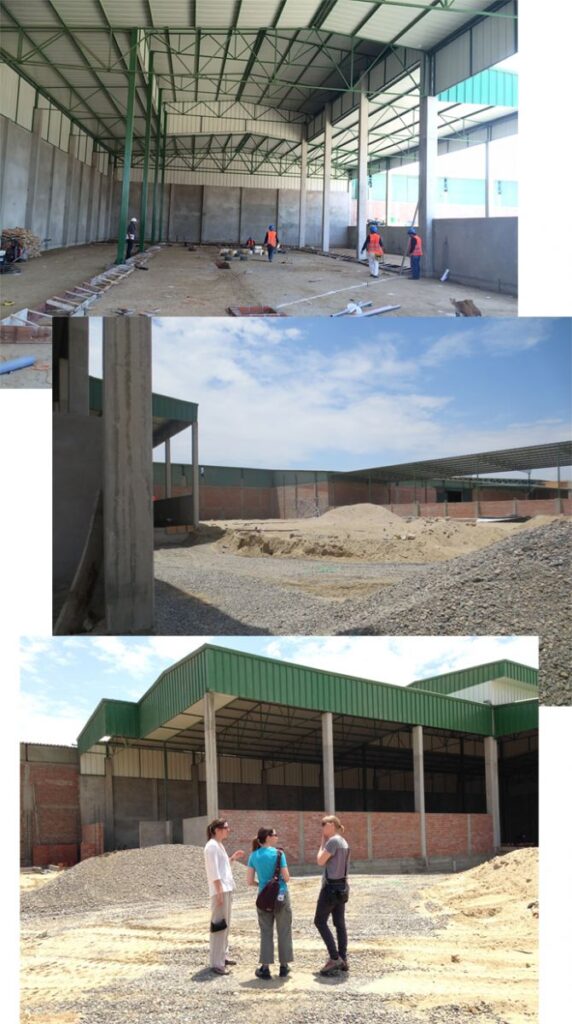
New coffee, cocoa and sugar plant
As we concluded our tour of the Co-op’s headquarters, Santiago gave us some parting words to bring home. “It is not easy. We are working with highly unstable products but we are putting a lot of energy on premium quality. We see that consumers want to know the story behind products and that fair pricing to both producer and consumer is important. This is important to us as well.”
Santiago also enlightened us to some of the challenges facing the co-op. “The big players are competing in our zones and sending buyers to try and buy from under us. If they continue to hold such a major control in the industry, it will be difficult for small
co-ops to survive.” What does this mean for La Siembra and our consumers? A continued commitment to support our small scale co-operative partners while being involved, as much as possible, in the supply chain.
And with that, we continued our journey to the highlight of our trip, visiting the sugar cane farmers situated a 3-hour drive along the winding road through the hills of the Ayabaca area to Montero.
It was evening when we arrived but the villagers were awaiting us despite the rain and darkness. We were guided into the home of Bonifacia Calle Quinde, the Village President, where we all gathered around the room and introduced ourselves one by one. With each introduction, the sentiment echoed “mis casa es su casa” with such sincerity. And in return, each of us five La Siembra members gave our heartfelt thanks and appreciation for welcoming us and for being our partners in business and solidarity. The evening concluded with our host family pairings, a cheers with Fernando’s home-made melon liqueur, and the parting words from our worker-owner and sales manager, Isabel: “Thank you for your extreme hard work and dedication. I am so proud to sell your muscovado to our customers in Canada.” Salud!
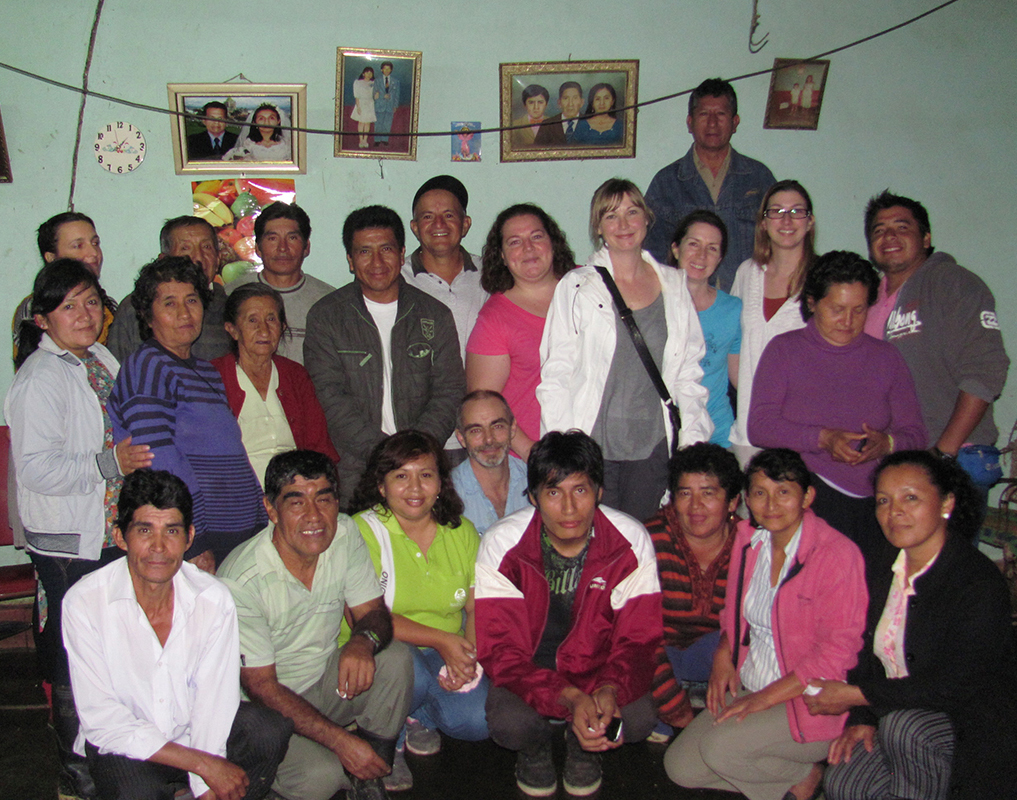
Community welcome reception (Photo credit: Josiane Paquet)
Written by Jennifer Alldred
Be sure to follow us on Facebook, Twitter and Instagram for some personal stories of our stay with family farmers.
